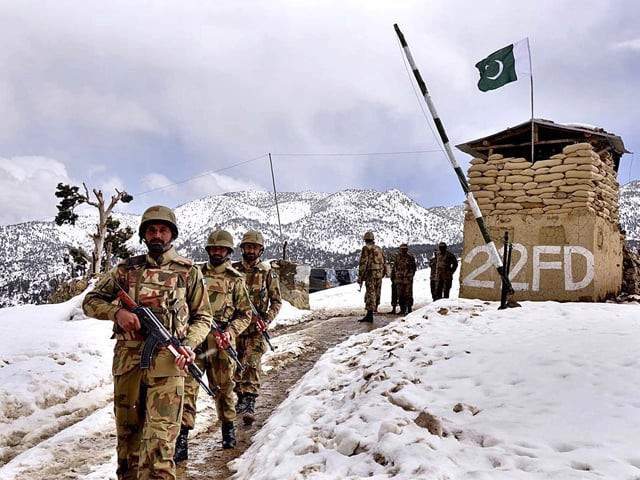Pakistan and national defence
Is the Pakistan Army prepared for a paradigm shift?

Major General Abbas correctly pointed to the waste occurring in the spending of the civilian budget which was responsible for creating the extra pressure on an already troubled economy and pointed to the gap in the military expenditures of Pakistan and India: $4 billion and $36 billion respectively.
The discussion of Pakistan’s national defence has always been an important topic in the country, especially during periods of low economic growth and financial emergencies. This is quite normal and it happens wherever a country comes under pressure from the malfunctioning of the national economy. In Pakistan, disclosure of the complete military budget in parliament has always been a controversial matter, and its absence from the budget document has often been attributed to the dominance of an army that runs state policy to maintain its importance among the state institutions.
It is also clear — as pointed out by Major General Abbas — that alternatives to defence policy are always possible through negotiation with the enemy, from whom threat is traditionally perceived. All countries under economic duress resort to negotiations and there are examples, where defence perceptions have changed among nations after they overhauled their relations with the ‘enemy state’. However, there are certain additional dimensions to Pakistan’s national defence that make the option of ‘normalisation of relations’ an important factor. The era of ‘intra-state’ conflict is upon us in South Asia. Both India and Pakistan are subject to this internal upheaval and need to revisit their hostile bilateral equation that swells their military budgets.
There are two ways the problem can be approached. One is the ‘Sri Lankan model’, which has overcome its intra-state conflict after ‘normalisation’ with its neighbour, India. The other way is to link the internal conflict to the ‘enemy without’ and worsen an already bad security situation. The increased heat of accusations of ‘cross-border’ interference through ‘local elements’ and ‘non-state actors’ actually brings the enemy states close to war, while internal conflicts deteriorate. The concept of ‘security’ is not only purely military; the economist also presents his alternative to interstate conflict hitched to disputes that can’t be resolved. The economist’s prescription of normalisation through trade and cross-border investment presumes resolution of perennial disputes after development of what he calls ‘co-dependency’.
Pakistan has also to deal with the question of the paramountcy of army. This military dominance over civilian governments is long-standing and is linked to Pakistan’s textbook nationalism, designating India as a permanent enemy. Because of a steadily declining economy and uneven development across the country, the ‘binding’ effect of our textbook nationalism is no longer uniform. The ‘threat of India’ does not inspire national integration in parts where alienation is actually increasing because of neglect. Is the Pakistan Army prepared for a paradigm shift?
What Major General Abbas says points to this shift, but events covered extensively in the media prove that it has not happened. In fact, what often appears credible is yet another instance of pressuring the civilian government into pliancy by exploiting the internecine national politics which may have actually been revived to maintain the army’s dominant position. The latest proof of it is Interior Minister Rehman Malik’s absurd ‘strategic wisdom’ that not only India, but also two other states, including the sole superpower, were busy bribing the Taliban to attack Pakistan!
Published in The Express Tribune, March 15th, 2011.














COMMENTS
Comments are moderated and generally will be posted if they are on-topic and not abusive.
For more information, please see our Comments FAQ